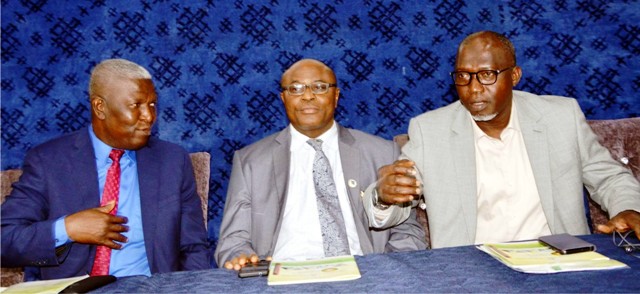Business
UN-MATATO To Establish Trade/Investment Zone In Lagos

The United Nations Maritime Transport Administration and Trades Organisation (UN-MATATO) is set to boost the economic growth, as well as job opportunities in the country through the establishment of a trade and investment zone.
Fleet Marine Marshall, Taiwo Mogbojuri, disclosed this at the community orientation and flag-off ceremony of the project on Monday in Lagos.
Mogbojuri said that the zone, which would be sited at Owode-Ibeshe, Ikorodu, Lagos, would enhance trading, tourism, manufacturing and maritime sectoral activities in the state.
He said that the community was chosen because of its easy accessibility through waterways to various parts of the state, adding that the project duration would be between eight to ten years.
“The project is borne out of the desire to promote the economy of Lagos and Nigeria at large, and to reduce the unemployment rate.
“I deem it fit and the time is now, to progressively chart the development of Lagos State and Nigeria at large,” he said.
According to him, residents whose buildings will be affected by the project will be compensated and resettled in other parts of the community.
Mogbojuri said that the project would be financed by the World Petroleum Exploration Nations and Maritime Organisations, the International Maritime Transport Commerce and Petroleum Organisation, and Lagos State Marine Services Ltd.
The traditional ruler of Ibeshe town, Oba Richard Ogunsanya, expressed appreciation at the project, saying it would bring development to the community, the state and the country at large.
He pledged the support of the community to ensure peace, stability and an enabling environment for the project.
The Tide source reports that UN-MATATO is a global federation of international organisations in maritime and trades facilitation matters, whose mission is to enhance the effectiveness and efficiency of maritime and global trades administrations.
Business
Two Federal Agencies Enter Pack On Expansion, Sustainable Electricity In Niger Delta

Business
Why The AI Boom May Extend The Reign Of Natural Gas

Business
Ogun To Join Oil-Producing States ……..As NNPCL Kicks Off Commercial Oil Production At Eba




